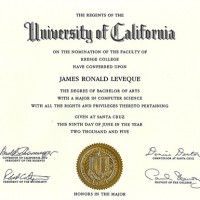Post #1
For my 4th C4T, I was assigned to Jeff Utecht's blog The Thinking Stick. The first post I read was entitled Technology: More than a tool, a new skill. In this post, Jeff starts off by talking about a previous post he had written regarding dropping the term "21st century" from anything regarding technology, since we have been in the 21st century for 11 years. Because of this, the term just didn't have the "oomph" it used to. He went on to say that his next big idea regarding technology was to stop looking at it as being a "tool" and more as a "skill."He made his point by using a metaphor regarding cars.
 If we look at a car as a tool, then we can load it full of people and push it from point A to point B. It is in essence doing the task we want it to do, but we are not fully taking advantage of its potential because we are not using the skills necessary to do so. If we stop teaching students to use technology as a tool, and teach them the skills necessary to use any type of technology, we are teaching them to use it to its fullest potential. Anyone can sit down in front of Microsoft Office products and fiddle with them for a few minutes, figuring out enough to get the job done. In my comment, I told Jeff that his post pretty much summed up what I had learned so far this semester and the attitude that I had developed toward our responsibility as teachers with regards to our students' use of technology in the classroom. He has not replied to my comment.
If we look at a car as a tool, then we can load it full of people and push it from point A to point B. It is in essence doing the task we want it to do, but we are not fully taking advantage of its potential because we are not using the skills necessary to do so. If we stop teaching students to use technology as a tool, and teach them the skills necessary to use any type of technology, we are teaching them to use it to its fullest potential. Anyone can sit down in front of Microsoft Office products and fiddle with them for a few minutes, figuring out enough to get the job done. In my comment, I told Jeff that his post pretty much summed up what I had learned so far this semester and the attitude that I had developed toward our responsibility as teachers with regards to our students' use of technology in the classroom. He has not replied to my comment.Post #2
The second post I read was How Much Longer Will a Degree Mean Something? In this post, Jeff Utecht examines a program offered by Stanford where you can go online and take courses offered at Stanford for free. The program is known as the Stanford Artificial Intelligence class, and 35,000 people have already completed several weeks worth of coursework. At the end of the course, they won't receive a degree from Stanford (because as Utecht explains that simply wouldn't be fair to those paying thousands of dollars to attend the University), but they will receive a certificate stating they have completed them.
The second post I read was How Much Longer Will a Degree Mean Something? In this post, Jeff Utecht examines a program offered by Stanford where you can go online and take courses offered at Stanford for free. The program is known as the Stanford Artificial Intelligence class, and 35,000 people have already completed several weeks worth of coursework. At the end of the course, they won't receive a degree from Stanford (because as Utecht explains that simply wouldn't be fair to those paying thousands of dollars to attend the University), but they will receive a certificate stating they have completed them.
Utecht goes on to analyze the program, saying that if we move to this type of system the skills and experience we hold will become more valuable than our  degrees which will change the way higher education works. I share the opinion of several other readers on this. In fact, my husband and I have discussed this very thing recently. When I graduate in a few semesters, my degree will have taught me the psychology of education, the history of education, and the theory of education. While all of those things are important to teaching, my degree will have taught me extremely limited information about the practical application of teaching. Education (at least at the elementary level) could almost be downgraded to an Associates Degree rather than a Bachelors and cram all that into two years rather than four. This would keep the cost down of a degree and get me into my hands on experiences much faster. Teaching, after all, is mostly about trial and error in the first few years anyhow.
degrees which will change the way higher education works. I share the opinion of several other readers on this. In fact, my husband and I have discussed this very thing recently. When I graduate in a few semesters, my degree will have taught me the psychology of education, the history of education, and the theory of education. While all of those things are important to teaching, my degree will have taught me extremely limited information about the practical application of teaching. Education (at least at the elementary level) could almost be downgraded to an Associates Degree rather than a Bachelors and cram all that into two years rather than four. This would keep the cost down of a degree and get me into my hands on experiences much faster. Teaching, after all, is mostly about trial and error in the first few years anyhow.
 degrees which will change the way higher education works. I share the opinion of several other readers on this. In fact, my husband and I have discussed this very thing recently. When I graduate in a few semesters, my degree will have taught me the psychology of education, the history of education, and the theory of education. While all of those things are important to teaching, my degree will have taught me extremely limited information about the practical application of teaching. Education (at least at the elementary level) could almost be downgraded to an Associates Degree rather than a Bachelors and cram all that into two years rather than four. This would keep the cost down of a degree and get me into my hands on experiences much faster. Teaching, after all, is mostly about trial and error in the first few years anyhow.
degrees which will change the way higher education works. I share the opinion of several other readers on this. In fact, my husband and I have discussed this very thing recently. When I graduate in a few semesters, my degree will have taught me the psychology of education, the history of education, and the theory of education. While all of those things are important to teaching, my degree will have taught me extremely limited information about the practical application of teaching. Education (at least at the elementary level) could almost be downgraded to an Associates Degree rather than a Bachelors and cram all that into two years rather than four. This would keep the cost down of a degree and get me into my hands on experiences much faster. Teaching, after all, is mostly about trial and error in the first few years anyhow. Also interesting to me is the idea of the skills you have being more important than the courses you took seems like it will bring us back in time to the point before EVERYONE got a college degree, which brought the value of a degree down to this point. It's funny how history is cyclical.
No comments:
Post a Comment